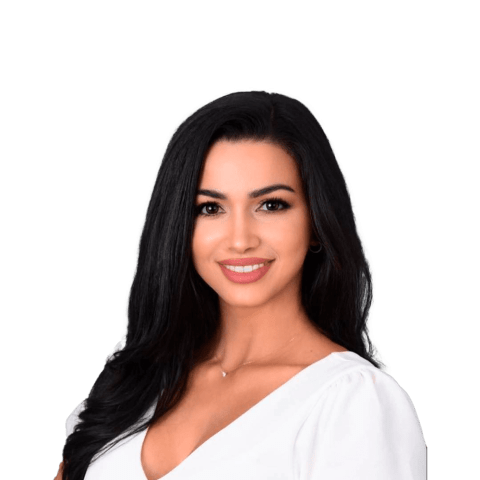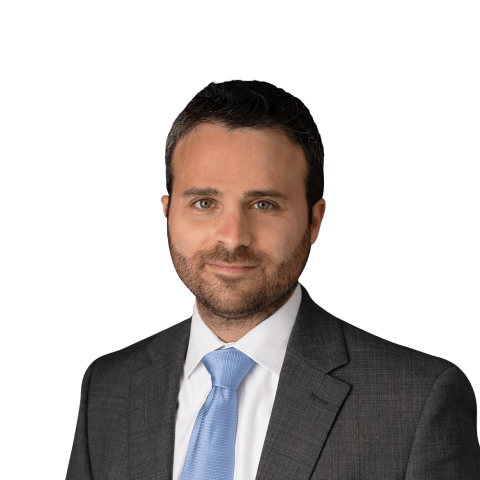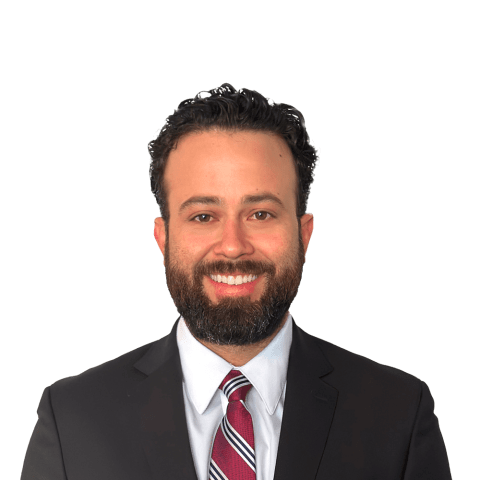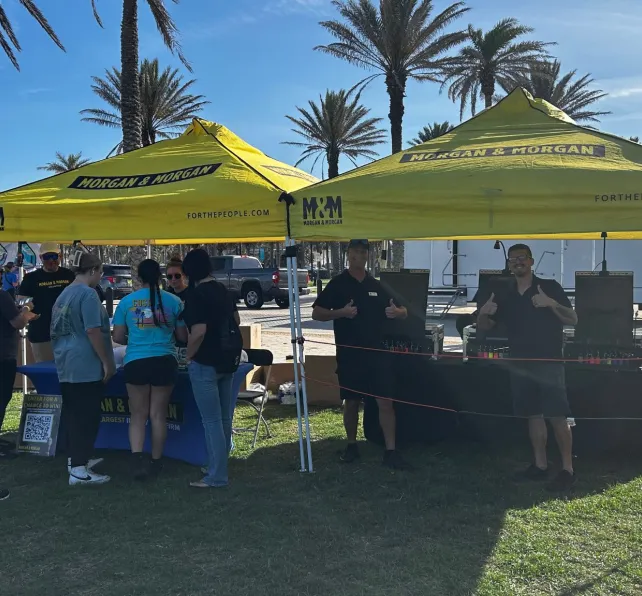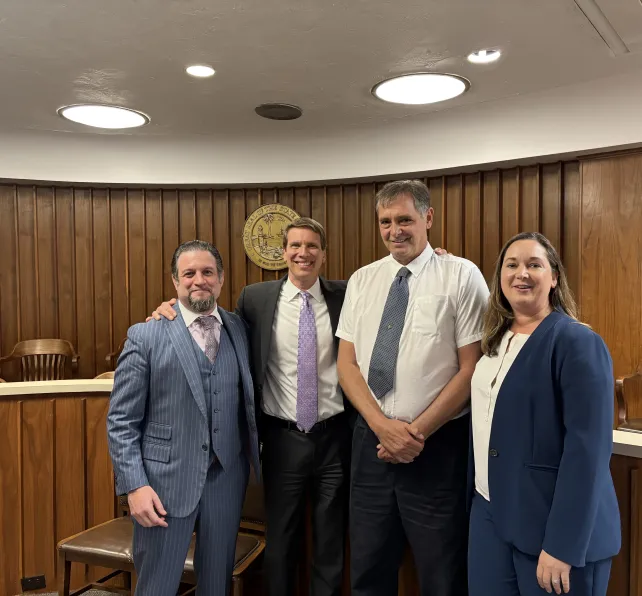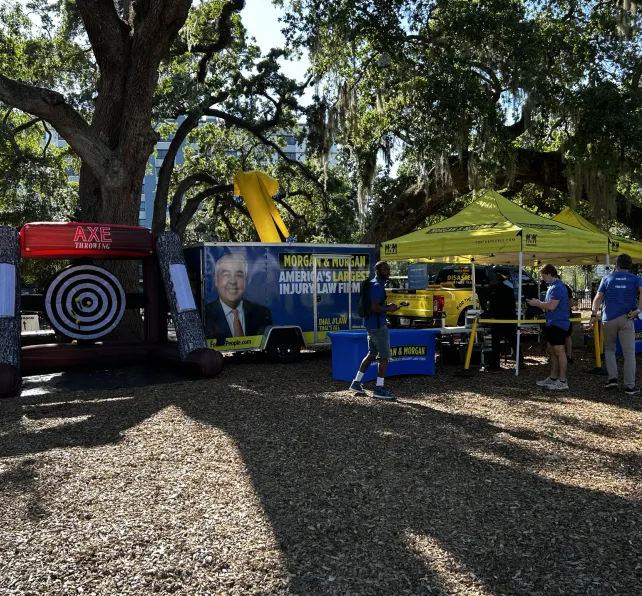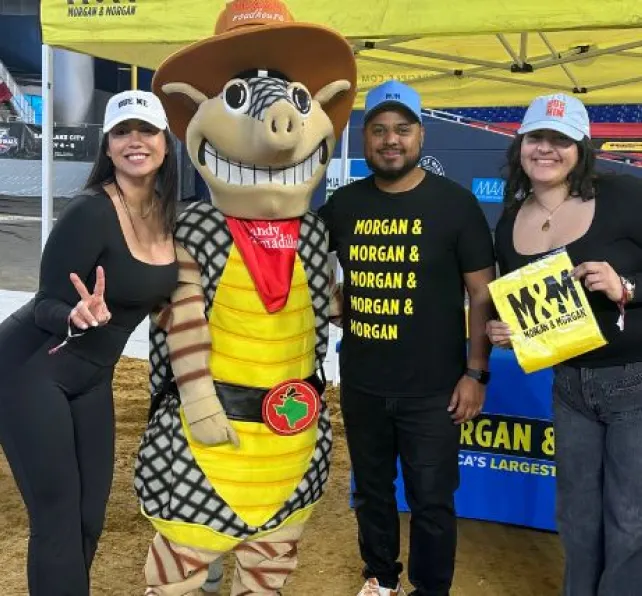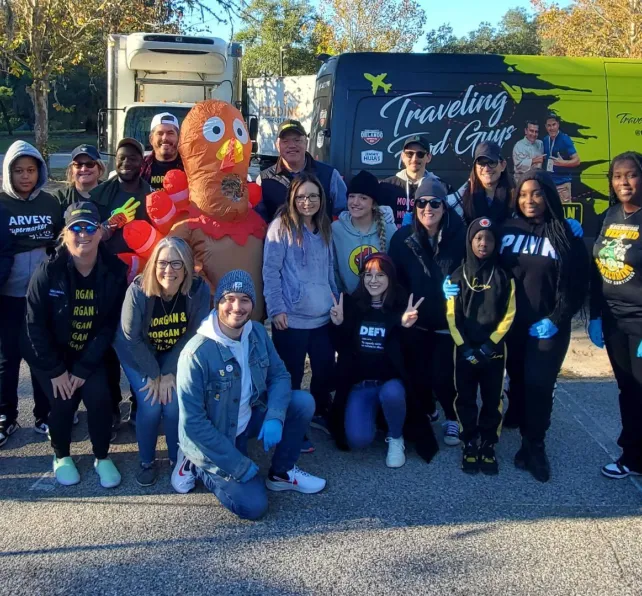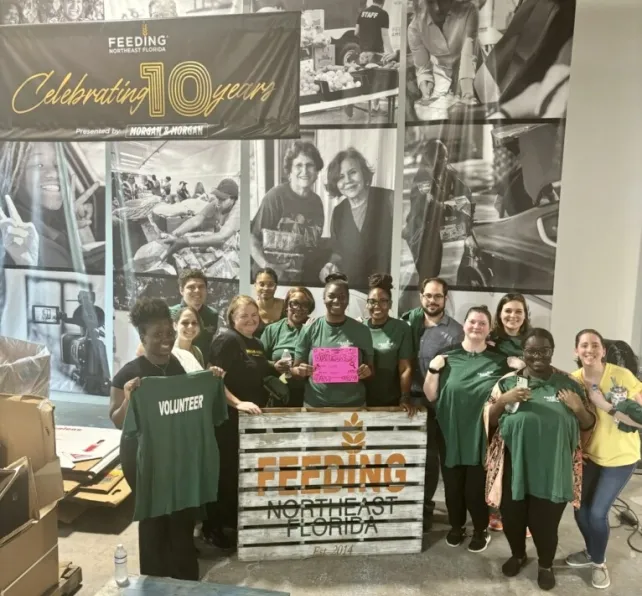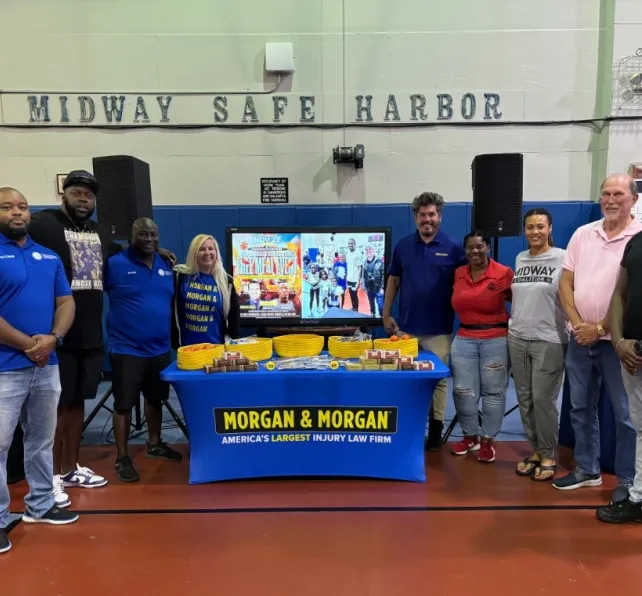Results may vary depending on your particular facts and legal circumstances. The attorney featured above is licensed in Florida. For a full list of attorneys in your state please visit our attorney page.
From Las Olas to Lauderdale Lakes, we fight for those who’ve been injured, because Fort Lauderdale deserves the help of America’s Largest Injury Law Firm.
Results may vary depending on your particular facts and legal circumstances. The attorney featured above is licensed in Florida. For a full list of attorneys in your state please visit our attorney page.
Personal Injury Lawyers in Fort Lauderdale
Fort Lauderdale isn’t just where we work, it’s our community. We stand with residents every day, protecting their rights and pursuing justice.
Ways We Can Help
Injured in a rideshare crash on I-95 or a boating accident near the Intracoastal? We have the experience and resources to help you move forward.
Injured in a car accident?
Hurt in a slip and fall?
Injured on the job?
Over 50 Case Types, Like:
View AllSocial Security
Dangerous Drugs
Defective Products
Medical Malpractice
Nursing Home Abuse
Labor & Employment
Truck Accidents
Class Actions
100,000+ Five Star Reviews
The reasons why clients trust Morgan & Morgan.
Based on select nationwide reviews.
Results may vary depending on your particular facts and legal circumstances.
Our Results
Results may vary depending on your particular facts and legal circumstances.
How It Works
Focus on your recovery. We'll take care of the rest.

Submit your free evaluation
Start your claim

Meet your legal team

We fight for more
Results may vary depending on your particular facts and legal circumstances. The attorneys shown in these photos may not be licensed in your state. To find an attorney licensed in your area, please visit our attorney page.
Local Care
Backed by America’s Largest Injury Law Firm.
$25 Billion
Recovered for clients
nationwide700,000+
Clients and families
served1,000+
Attorneys across
the country1
Click may change your life
The attorney featured above is licensed in Florida. For a full list of attorneys in your state please visit our attorney page.
Results may vary depending on your particular facts and legal circumstances.
In the Community
Discover the local Morgan & Morgan experience with news, events, and partnerships.
Learn More
Injured and not sure what to do next? We'll guide you through everything you need to know.
Get answers to commonly asked questions about our legal services and learn how we may assist you with your case.
What should I do immediately after being injured in an accident in Fort Lauderdale?
If you’ve been injured in an accident in Fort Lauderdale, taking immediate and appropriate action is important for your health and your potential legal claim.
Firstly, assess yourself and others involved in the accident for injuries. If anyone is injured, call 911 right away. Even if injuries seem minor, seek medical attention immediately. Some injuries may not be visible right away, and having a medical record is essential for your case.
If you’re able to do so, use your phone to capture images of the accident scene, vehicle damage, and any visible injuries. This evidence can be critical for your claim. Exchange contact and insurance information with the other party involved. Collect names and contact details of any witnesses who saw the accident.
If the police respond to the scene of the accident, provide them with accurate information about the accident. A police report serves as an official record and can be vital for your case.
Inform your insurance provider about the accident as soon as possible. Be honest but avoid admitting fault or making statements that could be interpreted as liability. Avoid making statements that could imply fault. Let the insurance companies and authorities determine responsibility based on the evidence.
Keep a detailed account of all medical treatments, expenses, and any impact the injury has on your daily life. This includes receipts, medical records, and a journal of your recovery process.
Finally, contact an experienced personal injury attorney at Morgan & Morgan as soon as possible. They can help you understand your rights, navigate the legal process, and ensure you meet deadlines for filing your claim.
Morgan & Morgan’s Fort Lauderdale personal injury attorneys offer free case evaluations, allowing you to discuss your case without financial obligation.
As your claim proceeds, follow all medical advice and attend follow-up appointments. Keeping up with your treatment not only supports your recovery but also strengthens your case by documenting your injuries.
Why choose Morgan & Morgan’s Fort Lauderdale personal injury attorneys?
Our Fort Lauderdale team of experienced attorneys are also local members of the community. They understand how to navigate the complexities of Florida law, and they understand the people of Fort Lauderdale.
They are also backed by the largest personal injury law firm in America, so while you receive personal care from local experienced attorneys, you also get the benefits of Morgan & Morgan’s extensive resources, proven track record, and robust representation.
At Morgan & Morgan, we fight For the People—not the powerful—and in our over 35 years of experience as a family firm, we have recovered over $25 billion for clients, so that they could get the compensation they needed and deserved to move forward with their lives after tragedy struck.
We take personal injury seriously, and we don’t believe you should bear the consequences of someone else’s negligence. Plus, we understand that these accidents can be incredibly challenging, and that’s why we don’t think hiring a lawyer should be.
Hiring a lawyer from Morgan & Morgan is easy, and you can get started in minutes with a free case evaluation.
How do I know if I have a case under Florida law?
If you've been injured due to someone else's negligence, you might be entitled to compensation. We want to ensure that everyone has access to information and the ability to get justice, so you can simply contact Morgan & Morgan for a free case evaluation to learn more about your legal options. Our team can review the details of your situation and advise you on the best course of action.
How long after an injury in Fort Lauderdale can I file my claim?
The amount of time you have to file a personal injury claim, known as the statute of limitations, varies by state and the specifics of your case. However, some exceptions may apply, such as in cases involving minors, government entities, or when the injury wasn’t discovered right away.
It's important to file your claim as soon as possible to preserve your legal rights. Failing to file within the statute of limitations could result in your case being dismissed, meaning you may lose the opportunity to recover compensation for your injuries.
Since deadlines can vary by state and situation, it's best to consult with a personal injury attorney as soon as possible after the incident to understand the specific timeline for your case. An attorney can help ensure your claim is filed correctly and on time.
Certain circumstances may extend or shorten the deadline:
- Discovery Rule for Medical Malpractice: If you were unaware of the injury immediately, such as in some medical malpractice cases, the clock may start when the injury is discovered or reasonably should have been discovered. However, there’s a hard limit of four years from the date of the incident.
- Claims Involving Minors or Incapacitated Individuals: If the injured party is a minor or legally incapacitated, the statute of limitations may be tolled (paused) until the minor turns 18 or the incapacitation ends.
- Claims Against Government Entities: If your claim involves a government entity, special rules apply, including the requirement to file a notice of claim within six months to one year, depending on the entity.
Filing your claim within the statute of limitations is critical. Missing the deadline generally means forfeiting your right to seek compensation, even if your case is strong. Florida courts are strict about these deadlines, and exceptions are rarely granted.
How much does it cost to hire a Fort Lauderdale personal injury attorney from Morgan & Morgan?
Morgan & Morgan’s Fort Lauderdale attorneys work on a contingency fee basis, meaning that there are no upfront fees or expenses until your case comes to a successful conclusion. That’s right—the Fee Is Free™, and you only pay if we win.
Our fee is a percentage of the settlement or verdict amount, ensuring we are motivated to achieve the best possible outcome for you.
Do I have to pay for a consultation with a Fort Lauderdale personal injury lawyer?
No, you do not have to pay for a consultation with a Fort Lauderdale personal injury lawyer at Morgan & Morgan. Our personal injury attorneys offer free consultations to potential clients.
If you choose to work with Morgan & Morgan’s Fort Lauderdale office, our personal injury lawyers work on a contingency fee basis. This means you only pay legal fees if your attorney successfully recovers compensation for you. If you don’t win, you don’t owe any fees.
What sort of compensation can I recover from a Fort Lauderdale personal injury case?
Compensation can vary widely depending on the specifics of your case, but generally, it could include:
Medical Expenses
You could recover the costs of medical treatment related to your injury, including hospital bills, doctor visits, surgery, physical therapy, prescription medications, and any future medical care you may need.
Lost Wages
If your injury has caused you to miss work, you may be compensated for lost wages. This includes not only the income you have already lost but also any future earnings you may be unable to earn due to your injury.
Pain and Suffering
Compensation for pain and suffering addresses the physical pain and emotional distress caused by your injury. This could include compensation for chronic pain, anxiety, depression, and reduced quality of life.
Property Damage
If your personal property was damaged as a result of the incident, you might be entitled to compensation for repair or replacement costs. This often applies to cases involving car accidents, where vehicle damage is a significant factor.
Loss of Consortium
In some cases, your spouse or family members may be entitled to compensation for the loss of companionship, support, and services resulting from your injury.
Punitive Damages
In cases where the defendant's actions were particularly egregious or reckless, you might be awarded punitive damages. These are intended to punish the wrongdoer and deter similar behavior in the future.
Disability and Disfigurement
If your injury has resulted in a long-term or permanent disability or disfigurement, you may be entitled to compensation for the impact on your ability to work and perform everyday activities, as well as the emotional toll of such changes.
Other Related Expenses
You may also recover other expenses related to your injury, such as transportation costs for medical appointments, home modifications needed to accommodate a disability, and costs for assistive devices like wheelchairs.
Every case is unique, and the specific compensation you may recover will depend on the circumstances of your injury and the extent of your damages. At Morgan & Morgan, our experienced attorneys will thoroughly assess your case and fight to ensure you receive the full compensation you deserve.
Who will be on my Fort Lauderdale case team?
When you hire Morgan & Morgan, you don’t just hire a lawyer, you hire the largest personal injury law firm in the country with an army of over 1,000 lawyers and offices in all 50 states and Washington, D.C.
Your case will be handled by a dedicated team of professionals, including personal injury lawyers, paralegals, and support staff. You will be assigned a care team that includes a primary attorney who will oversee your case and ensure you receive personalized attention throughout the process.
When do I meet with my Fort Lauderdale lawyer?
After your initial consultation, your care team will schedule regular meetings to discuss your case, provide updates, and prepare you for any upcoming proceedings. We are committed to maintaining open lines of communication and keeping you informed every step of the way.
These meetings can be handled in person, virtually, and by phone, depending on your case’s requirements and your ability to do so.
Do you have attorneys in Fort Lauderdale who speak multiple languages?
Yes, Morgan & Morgan has a diverse team of attorneys who speak multiple languages, including Spanish. We strive to ensure that language barriers do not prevent you from receiving the legal representation you deserve.
What happens after I submit my personal injury claim in Fort Lauderdale?
Once you submit your claim, our team will begin a thorough investigation, gather evidence, and build a strong case on your behalf. We will keep you informed of our progress and work diligently to secure the best possible outcome for you. If a fair settlement cannot be reached, we are prepared to take your case to trial.
For more information or to get a free case evaluation, contact Morgan & Morgan’s Fort Lauderdale office today. We are here to help you navigate the legal process and fight for the justice and compensation you deserve.
Will my personal injury case in Fort Lauderdale go to trial or settle out of court?
Many personal injury cases are resolved through settlements before reaching trial. Settling out of court can be a quicker, less stressful, and more cost-effective way to resolve a case depending on the facts of the case.
However, whether your case will settle or go to trial depends on several factors, including the strength of the evidence, the willingness of the other party to negotiate, and your own preferences. At Morgan & Morgan, we prepare every case as if it will go to trial to ensure we are ready to fight for the maximum compensation possible. If a fair settlement cannot be reached, our attorneys are fully prepared to take your case to court.
How long does a personal injury lawsuit in Fort Lauderdale take to resolve?
The duration of a personal injury lawsuit varies depending on the complexity of the case, the severity of the injuries, and the willingness of the parties to reach a settlement. Some cases may be resolved in a matter of months, while others can take years, especially if they go to trial.
At Morgan & Morgan, our attorneys work diligently to move your case forward as efficiently as possible while ensuring no corners are cut. We will provide you with an estimated timeline based on the specifics of your case and keep you informed of any changes. To learn more, get a free case evaluation today.
How often will I receive updates about my case in Fort Lauderdale?
At Morgan & Morgan, we understand that staying informed about your case is important to you. In Fort Lauderdale, our attorneys are committed to keeping you updated regularly throughout the legal process. You will receive updates at key stages of your case, including when there are new developments, when we receive important information, or when decisions need to be made. This ensures you are always aware of what’s happening and can make informed choices.
In addition to updates during significant milestones, our team will schedule periodic check-ins to discuss your case's progress, answer any questions, and address any concerns you may have.
If you have questions or need an update outside of scheduled communications, you can contact your attorney or case manager. We strive to respond promptly, as we believe open communication is key to a successful client-attorney relationship.
Our goal is to provide clear and transparent updates so you always know where your case stands. We are dedicated to guiding you through the process and ensuring you feel supported every step of the way.
¿Usted tiene preguntas acerca de su caso en español?
Los abogados de lesiones personales de Morgan & Morgan entendemos lo importante que es resolver todas sus preguntas legales en el idioma en el que usted pueda entender mejor. Por eso contamos con una sección de Preguntas Frecuentes en nuestra página de abogados.com. Recuerde que en caso de ser victima de un accidente y necesitar ayuda legal, usted cuenta con los abogados de Morgan & Morgan. Siendo el bufete de abogados de lesiones personales más grande de los Estados Unidos, contamos con los recursos y la experiencia que usted necesita para defender sus derechos. ¡La justicia es derecho de todos!



